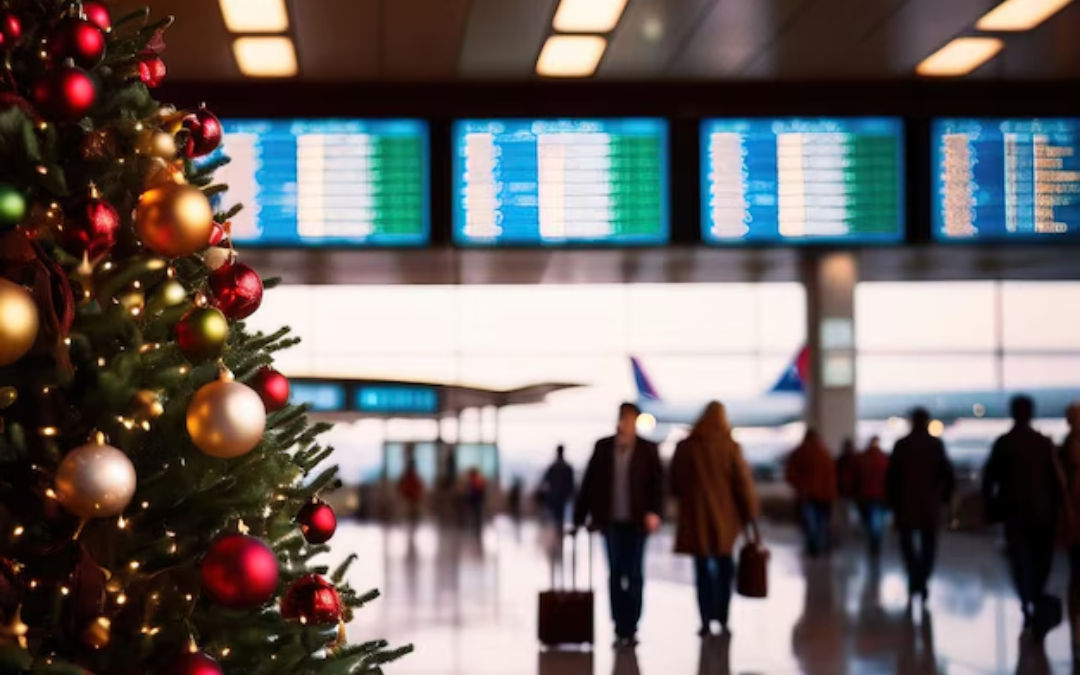The festive season is here, with Christmas decorations, twinkling lights, and cheerful music filling the air. Amidst the end-of-year rush that mixes joy, chaos, and nostalgia, individuals scramble to complete their to-do lists and soak in the holiday spirit. Unfortunately, the same festive cheer has not extended to the immigration landscape, where systemic inefficiencies, especially within the VFS system, have created a chaotic environment. Visa applicants face mounting difficulties in securing appointments, with time running out for those whose visas are expiring.
This article explores the persistent challenges in immigration processes, the government’s efforts to address them, and essential travel information for individuals planning international trips during the holiday season.
Clearing the Backlog: A New Backlog Emerges
One of the primary commitments by the Minister of Home Affairs upon assuming office was to address the longstanding visa backlog, where applications had remained unprocessed for over two years. To his credit, substantial progress has been made, with a flurry of outcomes being issued. However, this has come at a cost: the quality of decision-making appears compromised. Many applicants report baseless rejections, such as applying new laws to older cases or rejecting spouse visas due to unrelated issues, like the spouse’s business registration with SARS.
Rather than resolving the backlog, these decisions have shifted the problem to a new pile—appeals. The appeals backlog remains stagnant, with some cases dating back to 2019. After enduring years of waiting, applicants reasonably expect well-considered outcomes. Instead, they are pushed into an appeals process that seems just as dysfunctional.
VFS Chaos: A Perfect Storm of Inefficiency
The year-end period traditionally sees heightened demand for VFS services. While some delays are expected, this year has seen unprecedented challenges. Since August, appointment availability has progressively worsened, culminating in the unavailability of slots for the rest of the year by October. Currently, VFS only accommodates submissions from individuals whose visas are about to expire, and even these applicants face extended delays and chaotic queues.
Applicants attempting to collect decisions face similar challenges. Previously, individuals could walk in to retrieve their outcomes. Now, they must book appointments for collections, further straining the system. This surge in demand stems from several factors:
- Backlog Clearance: Efforts to clear the visa backlog have led to a significant rise in collection requests.
- Poor Decision Quality: Many rejected applicants must file appeals, creating additional demand for submission slots.
- ZEP Transition: The end of the Zimbabwe Exemption Permit (ZEP) program has added pressure, with ZEP holders competing for the same limited resources as other applicants.
Together, these issues have created a “perfect storm,” overwhelming VFS and frustrating applicants.
Government Directives: Attempting to Restore Order
In response to these challenges, the Minister of Home Affairs has issued two key directives to alleviate the strain on VFS and address the bottlenecks.
Immigration Directive 13 of 2024
This directive allows rejected applicants to submit appeals at VFS up until March 31, 2025, provided they book within 10 working days of receiving their outcome. This aims to eliminate the need for walk-ins and reduce congestion.
Immigration Directive 15 of 2024
To address the ZEP crisis, this directive extends the ZEP permits’ validity to November 28, 2025. This provides ZEP holders additional time to transition to other visa categories and aligns with a court ruling that overturned the termination of the program.
These directives are intended to free up capacity at VFS, prioritizing the most urgent cases. However, their effectiveness remains limited as many applicants still find themselves queuing at the crack of dawn to secure service.
Travel Concessions: Ensuring a Stress-Free Holiday Season
A final point of importance is the visa concessions still in place for travellers with pending applications. Individuals who submitted their visa applications, appeals, or waivers before June 29, 2024, can travel without being declared undesirable, provided they carry their VFS receipt. These concessions are valid until December 31, 2024, allowing applicants to enjoy the festive season without undue concern.
Travelers are advised to carry a copy of the directive alongside their VFS receipt for smoother processing at ports of entry.
Conclusion
While the festive season brings cheer for many, the immigration system continues to face severe challenges. The government’s backlog clearance efforts, though commendable, have inadvertently created new issues, such as poor decision quality and a swelling appeals queue. Meanwhile, VFS struggles to handle surging demand, exacerbated by overlapping crises, including the ZEP transition.
The government’s directives offer temporary relief, but long-term solutions are needed to restore efficiency and fairness to the immigration process. In the interim, applicants must remain patient and well-informed as they navigate this turbulent period. As we move into the new year, a comprehensive reform of immigration services should be a priority to prevent the same chaos from recurring in the future.

